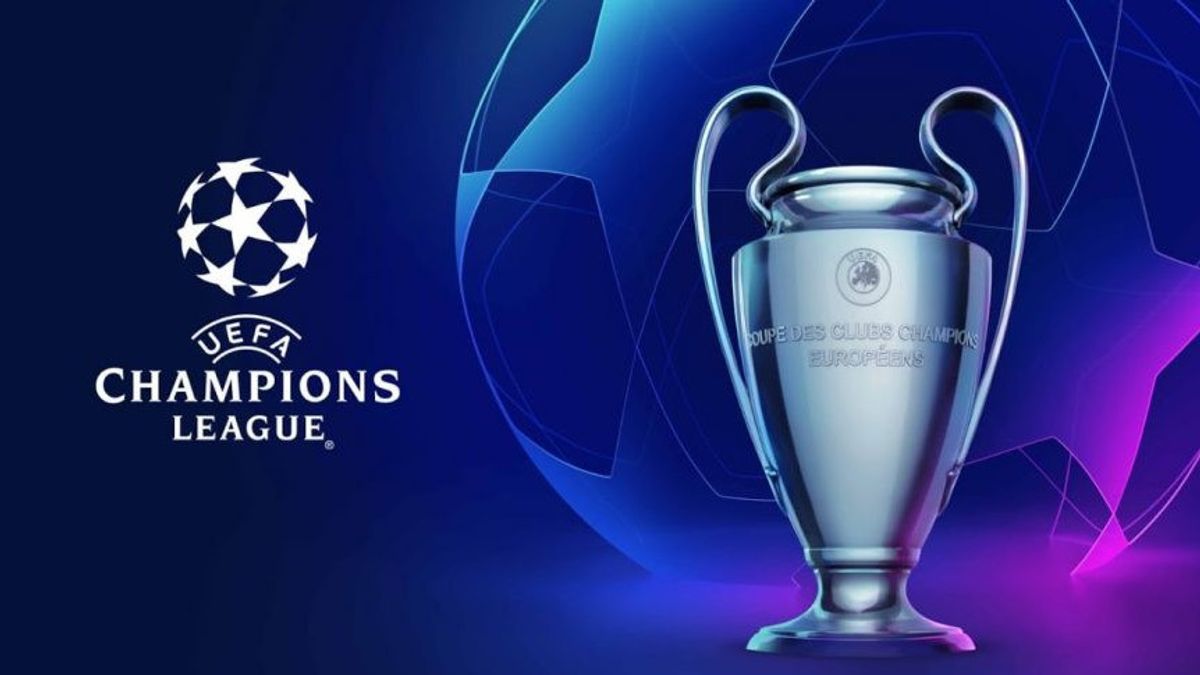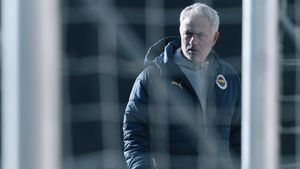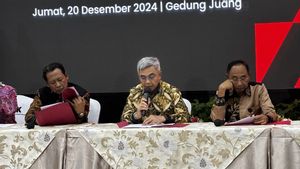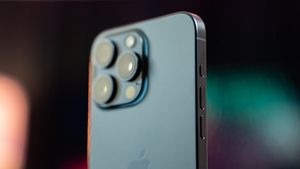JAKARTA - Broadcasting rights money and sponsorship contracts have always been UEFA's main sources, especially in the most prestigious club football competition, the Champions League.
Citing UEFA's 2020-21 financial report for example, the Champions League last season received broadcast rights revenue of 2.3 billion euros (approximately IDR 37.2 trillion) and 401.5 million euros (approximately IDR 6.2 trillion) from sponsorship contracts.
Reflecting on these fantastic figures, it's hard to believe that UEFA had banned clubs participating in European competitions from displaying sponsor logos on their respective jerseys before 1982.
Even a year earlier, it was not only the sponsor's logo on the front of the jersey that was banned, but also the unique rule that banned the logo of the apparel provider's sponsor on the jersey itself.
This was experienced by Liverpool when they faced Real Madrid for the 1980-81 Champions Cup final at the Parc des Princes, Paris, France, on 27 May 1981.
Apart from the only goal that decided the victory over Real Madrid, which was scored by Alan Kennedy, of course the final was remembered for the white tape that was attached to the right chest of the Liverpool players' jerseys throughout the match.
While the public may have only been aware of the white tape during the 90 minutes of the match and the trophy-lifting ceremony, Kennedy recalled the incident as inconvenient and senseless.
The warm-up schedule, the pre-match ritual and the match meeting chaired by manager Bob Paisley had to be postponed because Liverpool were involved in a small quarrel with television stations that held broadcasting rights over sponsorship.
"It was cruel. Hours before the game we had to put white tape on each other's jerseys. I did it for Alan Hansen's jersey, he did it for me, and Phil Thompson glued it to Phil Neal's jersey," Kennedy recalled in a BBC broadcast in 2018 quoted from Antara.
"It's something that doesn't make sense and probably won't happen now, but Bob reacted well. He said it should have made us more determined to win the game.
"His attitude is always like that whenever there are parties who put a problem in front of us, we move on, and that's what we do," Kennedy said at length.
Kennedy et al in the end not only overcome the ridiculous problem of having to play with white tape on the chest of their jersey, but also conquered Real Madrid.
A throw-in by Ray Kennedy was missed by Real Madrid's back line, who was fooled by Alan Kennedy's chest-stopping effort on the right side of the defence.
Rafael Garcia Cortes' clearance effort was met with wind, while Kennedy pushed his way into the Real Madrid penalty area before beating goalkeeper Agustin and breaking the deadlock in the 82nd minute.
Liverpool won their third Champions Cup trophy, becoming the fourth team to do so after Real Madrid, Ajax and Bayern Munich.
Moreover, Paisley also established himself as the first coach to win the Champions Cup three times after 1977 and 1978.
These achievements will certainly be far more memorable than the ridiculous controversy of white tape on the right chest of the Liverpool jersey. But the white tape still leaves its own unique story in the journey of European football which is like one of the most commercial football competitions.
Horst Dassler's trick
The intimacy between the top brass of sporting organizations and businessmen is no secret, as in recent years UEFA President Aleksander Ceferin found "loyal allies" in the owner of Paris Saint-Germain cum businessman who manages the television station beIN SPORT, Nasser Al-Khelaifi.
Similar intimacy also seems to occur behind the scenes related to the incident of white tape on the chest of Liverpool jersey in the 1980-81 Champions Cup final.
Welsh football history and jersey researcher Simon Shakeshaft, who has written books on team uniforms, said Adidas boss Horst Dassler was responsible for Liverpool's white tape.
For the record, since the 1973-74 season Liverpool already have a sponsorship contract with Umbro, a British sports equipment company that previously served as adidas distributor in the United Kingdom.
According to Shakeshaft in a 2018 article on museumofjerseys.com, Dassler - the son of Adi Dassler, the founder of Adidas - has ambitions to take over Liverpool's apparel sponsorship because of their success and that of other English clubs in Europe.
In 1978, John Humpherys - the son of Harold who founded Umbro with his brother Wallace - died and Dassler was increasingly approaching Liverpool, something that infuriated Stuart, John's younger brother.
The 1980-81 Champions Cup final came just in time for Dassler to launch his ruse to keep Liverpool close.
Somehow the story, Shakeshaft tells that Dassler succeeded in persuading then UEFA President Artemio Franchi to ban the appearance of apparel logo advertisements in the 1980-81 Champions Cup final.
The trick was certainly not without advantages for Adidas, which at that time was the apparel sponsor of Real Madrid where the German company's signature trefoil (three-leaf) logo was also covered on the right chest of the Los Blancos jersey.
However, the move clearly did not cost Adidas as much as Umbro felt, whose logo was completely missing from the Liverpool jersey.
This is because the three-stripe accent - which the whole world knows is a sign of Adidas - is still plastered on the sleeves of the jersey, the side of the pants, and the top of the socks worn by Real Madrid players.
Moreover, Adidas also has another place to show its presence because the entire Liverpool squad except for two players wear their shoes as a sponsorship agreement between the two parties.
Liverpool, the club sponsored by Umbro, clearly came out victorious, but in the business war Adidas won far more.
Shakeshaft said the Umbro-Adidas business war continued until Dassler had also been incessantly wooing Anfield officials until he succeeded in spawning an agreement for Liverpool to use Adidas balls for home matches since 1982.
It didn't stop there, Dassler also finally succeeded in signing Liverpool for an apparel contract starting from the 1985-86 season which included an agreement that they also had to start using a new jersey for the 1984-85 Champions Cup final.
Liverpool faced Juventus wearing the Adidas jersey in the 1984-85 Champions Cup final which is later remembered as the site of the Heysel Tragedy.
Adidas paid Umbro compensation for breach of contract related to the 1984-85 Champions Cup final, but they will retain Liverpool's apparel contract until at least 1996 and again in 2006-2012.
The English, Chinese, Japanese, Arabic, and French versions are automatically generated by the AI. So there may still be inaccuracies in translating, please always see Indonesian as our main language. (system supported by DigitalSiber.id)











